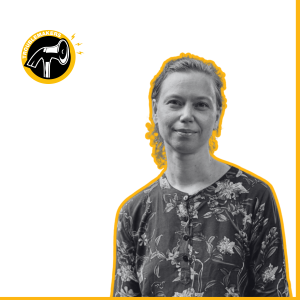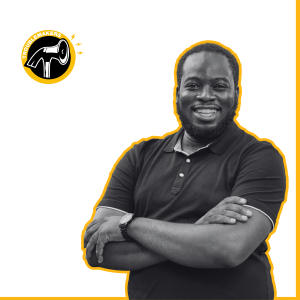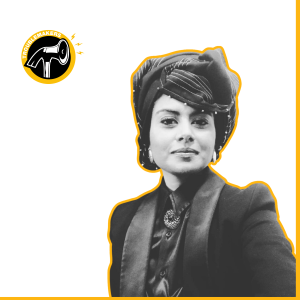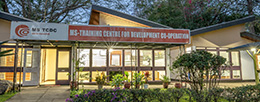CONSULTANCY: DEVELOPMENT OF CURRICULUM FOR EAC YOUTH FELLOWSHIP
BACKGROUND AND CONTEXT
As Africa is experiencing a huge demographic dividend, the continent stands at a pivotal moment to harness its growing young population for sustainable economic growth and development. With Over 60% of Africa’s population being under the age of 25, Youth are a human resource potential capable of driving Africa’s transformation agenda and ultimately contributing to Agenda 2030 of the Global Sustainable Development Goals and the continental Agenda 2063 which is Africa’s blueprint and master plan for transforming Africa into the global powerhouse of the future.Young people indeed are central to the success of Agenda 2063 given the continent has the largest youth population in the world, and the choices made today will shape the continent’s future.
There however, still exists a leadership skills gap which hampers meaningful youth participation and contribution to continental growth and development. To bridge the existing youth leadership skills gap, it has been noted that meetings, forums, conferences and summits are in themselves not a durable solution to address the leadership capacity gap envisioned for the youth. There is still a need for youth to access more training, mentorship programs and opportunities to engage with senior leaders, as well as for more youth to be exposed to job opportunities, and to develop their leadership skills, particularly in the public, private, and civil society sectors. Therefore the fellowship tracks of youth in leadership and politics, as well as the youth in business and enterprises coupled with the cross cutting themes of Climate Justice, Gender equality, Digital & Green Transition will indeed nurture the next generation of East African Leaders.
OBJECTIVES
The EAC Youth Fellowship Curriculum will achieve the following objectives:
- To empower young East African youth to become transformative leaders in the public and private sector.
- To promote mentorship among East African youth in the private, public, and non-profit sector/ institutions.
- To build and promote collaborations & networking amongst East African youth leaders.
The curriculum will also cover and give insights on:
- Youth Inclusion in Social Economic Development
- Public Policy Making (AfCFTA).
- Youth enterprise and innovation for job creation (the future of work).
- Strategies for Youth-led Action in Climate Change, Digital and Green Transition.
SCOPE OF WORK
1. Curriculum Development:
- Design and draft a comprehensive training manual on Youth in leadership and Politics, Youth in Business and Enterprises.
- Integrate theoretical knowledge, interactive activities, and practical tools into the curriculum.
- Include sections on leadership, business development, climate justice, gender equality and green transition.
- Develop tools to assess the effectiveness of the curriculum by establishing clear indicators for measuring youth engagement and the application of skills gained
2. Validation Process
- Present the draft curriculum for validation by key stakeholders, including the EAC youth fellowship steering committee, faculty facilitators, and MS TCDC management.
- Incorporate feedback and finalize the curriculum.
3. Delivery
- Submit the first draft of the curriculum by September 8, 2025.
- Deliver the final version of the curriculum by September 15, 2025.
TARGET GROUP
Youth (aged 18-35 years) from the East African community (Burundi, Kenya, Rwanda, South Sudan, Tanzania, the Democratic Republic of Congo, Somalia and Uganda) were recruited based on their demonstrated public and business sector leadership potential. While the curriculum will initially target the East African context, it should be broadly relevant to the Sub-Saharan African region, as the fellowship is intended to be extended to other Regional Economic Communities (RECs) across Africa.
DELIVERABLES
- A comprehensive Youth in leadership, Politics, Business & Enterprises Curriculum, including:
- Training modules with theoretical and practical content.
- Crosscutting Sections on Climate Justice, Gender Equality & Green Transition.
- Tools and strategies for Policy Making and advocacy.
- Tools and frameworks to assess the effectiveness of the curriculum
- A session/training guide
2. A final report summarising the curriculum development process and key findings.
A list of proposed topics for the curriculum will be shared with the consultant.
TIMELINE
- Submit the first draft of the curriculum by September 8, 2025.
- Validation week: 8th to 12th September 2025
- Deliver the final version of the curriculum by September 15th, 2025.
QUALIFICATIONS AND EXPERTISE
The consultant(s) must possess the following qualifications:
- A bachelor's degree in political science, international relations, governance, leadership, education, development studies, or a related field. A master's degree will be an added advantage.
- Proven experience in curriculum development, particularly in Leadership and business education.
- Knowledge of youth participation in leadership processes, including regional Integration.
- Expertise in facilitating participatory and inclusive approaches.
- Familiarity with gender-sensitive methodologies.
- Strong writing and analytical skills.
APPLICATION PROCESS
How to Apply: Interested consultants should submit the following documents:
- A technical proposal outlining their understanding and approach to the assignment.
- A financial proposal with a detailed budget breakdown.
- CV(s) highlighting relevant experience and relevant references.
- Samples of previous work in related fields.
Application Deadline: 30th August 2025, midnight EAT (East African Time)
Qualified candidates will be considered. Only shortlisted candidates will be contacted.







